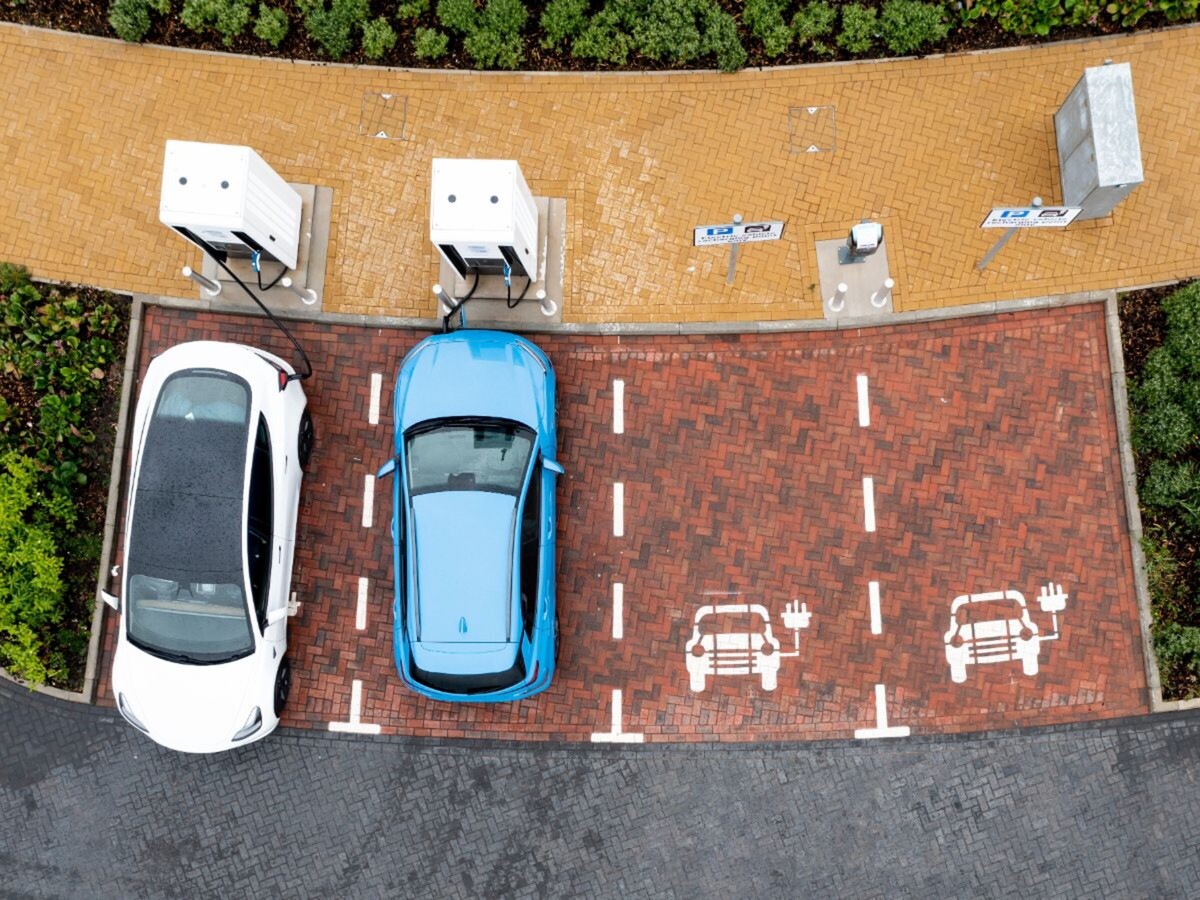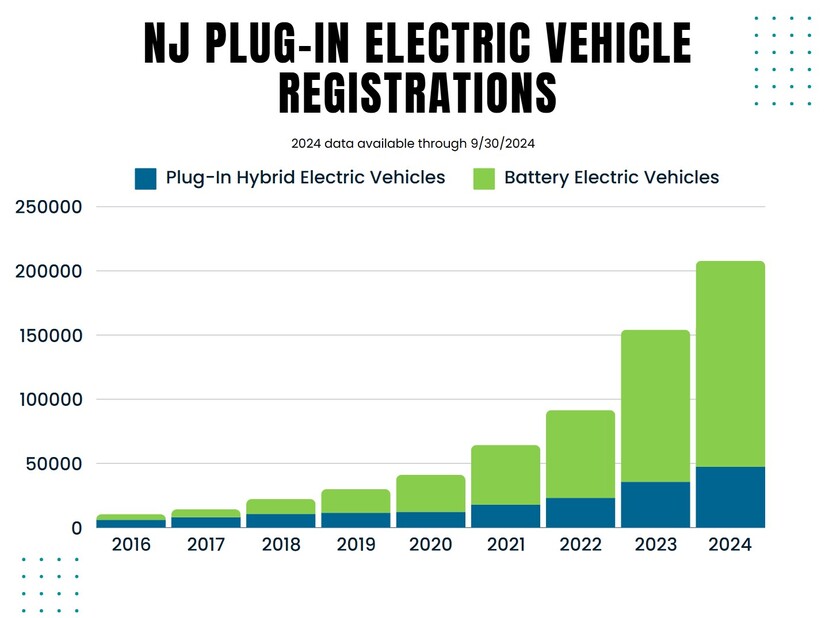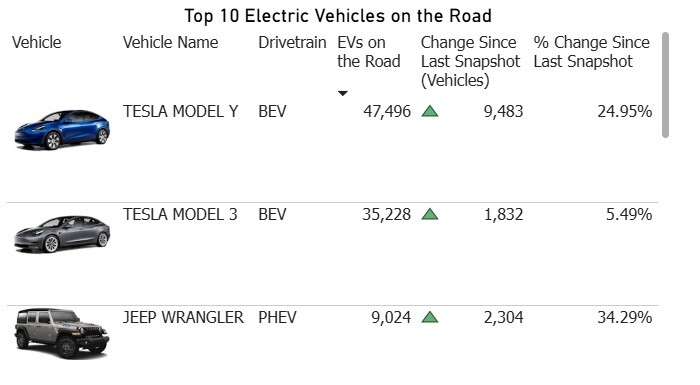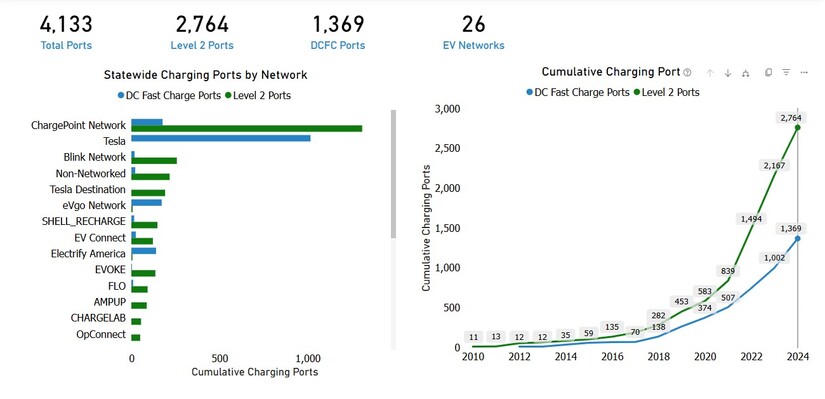Image


New Jersey has reached a significant milestone in its push toward sustainable transportation, surpassing 200,000 electric vehicle (EV) registrations. According to the New Jersey Motor Vehicle Commission, nearly 208,000 battery-electric and plug-in hybrid vehicles are now registered statewide—a figure that has more than doubled in just two years.
This achievement reflects growing consumer confidence in EV technology, increased vehicle availability, and the success of state programs aimed at addressing barriers such as "range anxiety," or fear of insufficient charging infrastructure. Governor Phil Murphy’s administration has prioritized EV adoption as part of its efforts to reduce greenhouse gas emissions, improve air quality, and foster a sustainable transportation system.
“New Jersey is leading the charge in transitioning toward a zero-emission future. Reaching this 200,000 EV milepost clearly demonstrates growing consumer confidence in the performance of electric vehicles and our growing regional network of charging infrastructure,” said Governor Murphy. “The steps we take today to lower emissions will improve air quality and mitigate climate impacts for generations to come, all while increasing access to cleaner car choices.”
 A snapshot of active electric vehicle registrations in NJ from 2016 to 2024.
A snapshot of active electric vehicle registrations in NJ from 2016 to 2024.Transportation accounts for 37% of New Jersey’s greenhouse gas emissions, making it the largest contributor to climate change in the state. Emissions from vehicles also produce pollutants that harm public health and contribute to smog. Transitioning to electric vehicles plays a critical role in addressing these challenges.
New Jersey's EV adoption has shown rapid growth over the years:
“We are proud of this milestone and remain committed to supporting the continued growth of electric vehicles in New Jersey,” said Environmental Protection Commissioner Shawn M. LaTourette. “For the last three years, the state’s market share of EVs has consistently exceeded the national average, and we will do everything we can to maintain this momentum.”
Currently, manufacturers offer 57 EV models in New Jersey. Data from the Northeast States for Coordinated Air Use Management shows the state’s EV market share reached 14.4% in the third quarter of 2024, significantly higher than the national average of 10.2%.
 The top 10 EVs on the road in New Jersey (Tesla holds 4 of the top 10 spots, Jeep and Toyota hold 2 each)
The top 10 EVs on the road in New Jersey (Tesla holds 4 of the top 10 spots, Jeep and Toyota hold 2 each)The Murphy administration has implemented several initiatives to support EV adoption and infrastructure development, including:
Since 2019, the state has provided over $600 million in incentives, benefiting residents, local governments, and businesses.
 Charging station deployment overview with a timeline from 2010 to 2024.
Charging station deployment overview with a timeline from 2010 to 2024.The number of publicly accessible charging ports in New Jersey has also grown significantly, increasing from just 150 in 2016 to over 4,000 today. Additional programs, such as It Pay$ to Plug In and the Multi-Unit Dwelling EV Charger Incentive Program, are expected to bring thousands more online in the near future. The Board of Public Utilities (BPU) has also funded 7,000 home chargers, meeting the needs of many EV owners.
New Jersey’s leadership extends to regional initiatives, such as a $250 million multi-state collaboration to deploy EV charging infrastructure for commercial vehicles along the I-95 corridor.
New Jersey residents and businesses can combine state incentives with federal tax credits to lower the cost of purchasing EVs and charging equipment. These programs, coupled with utility-based incentives, aim to make EV adoption more affordable and practical for all.
The state remains committed to expanding EV infrastructure, incentivizing clean transportation options, and addressing environmental and public health challenges posed by vehicle emissions.
For detailed charts, data on EV sales and registrations, and charging station locations, visit Drive Green New Jersey.